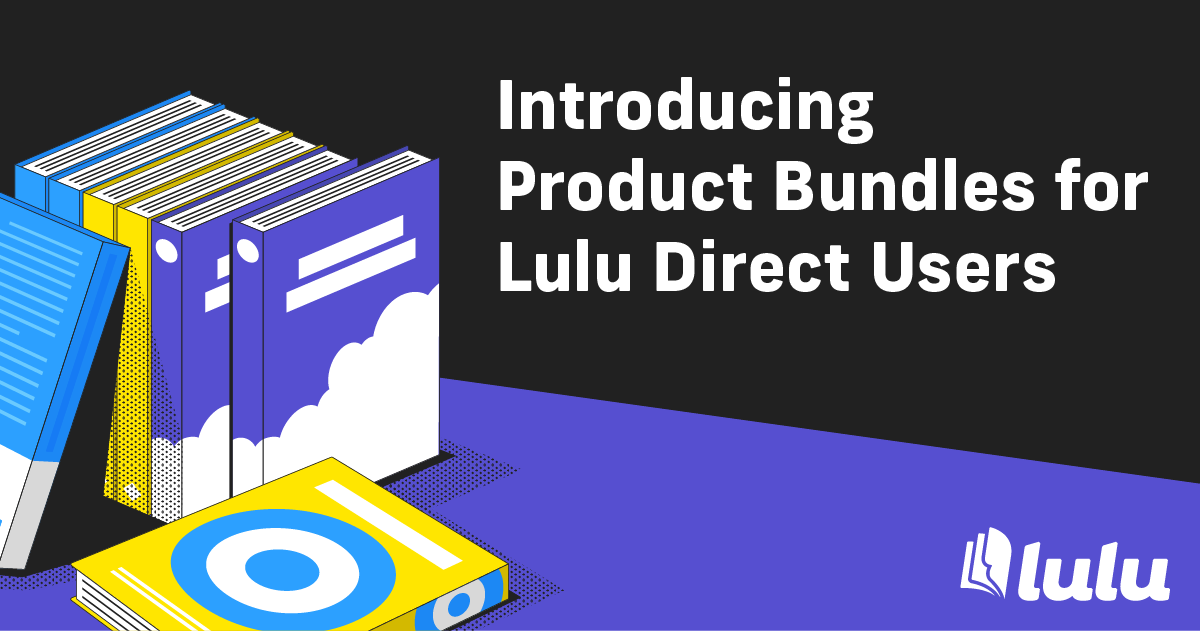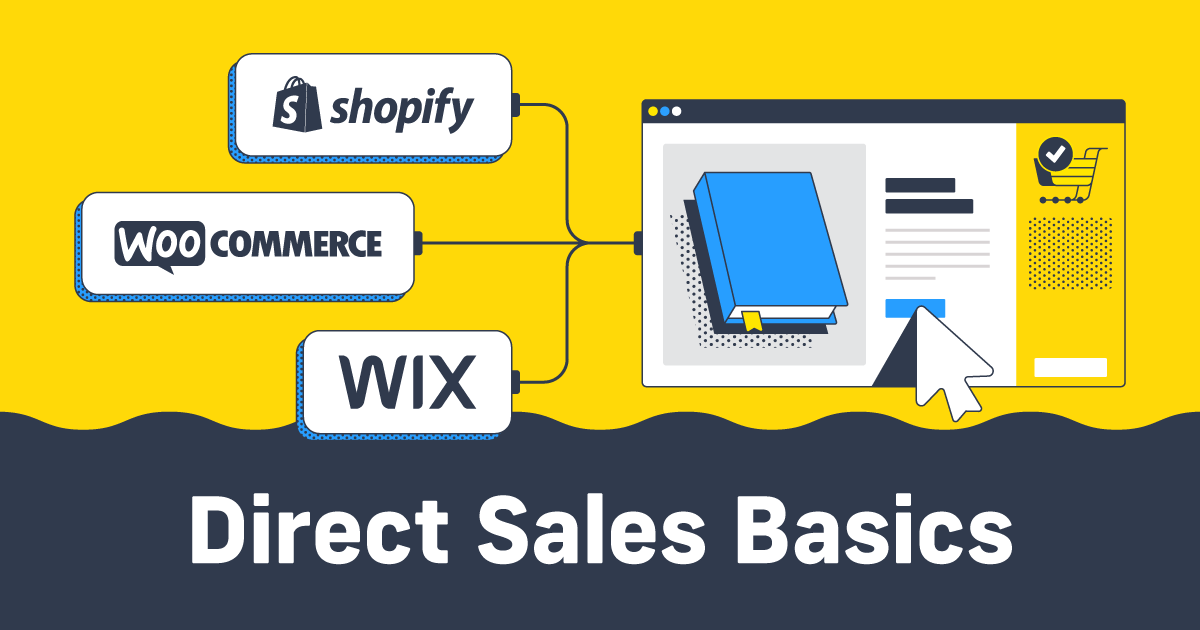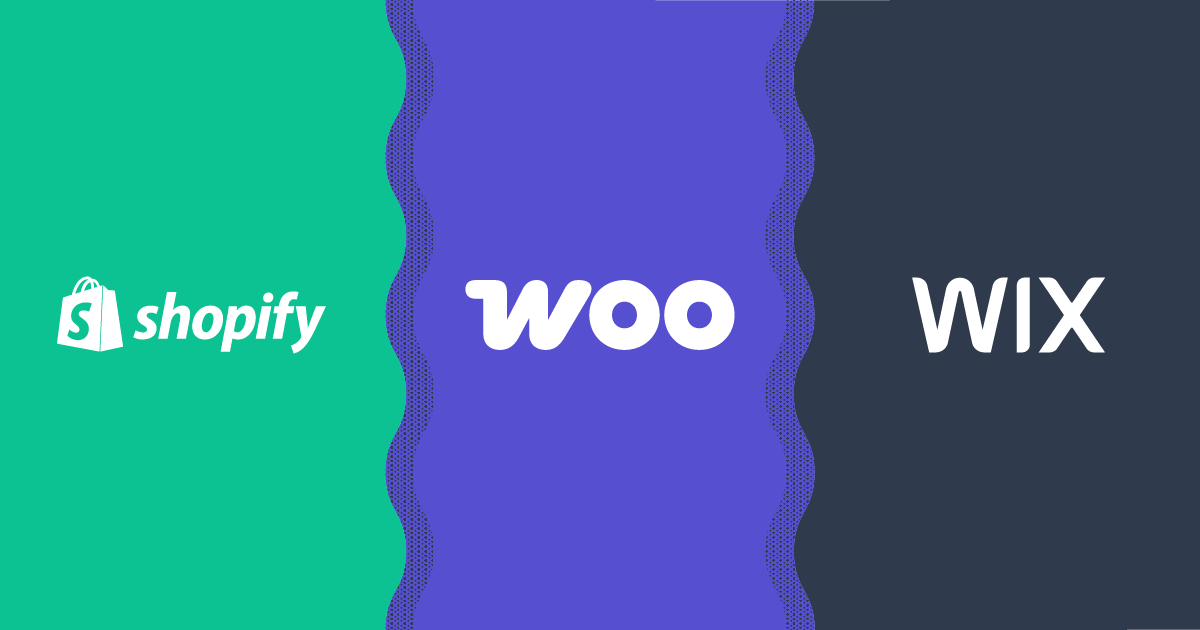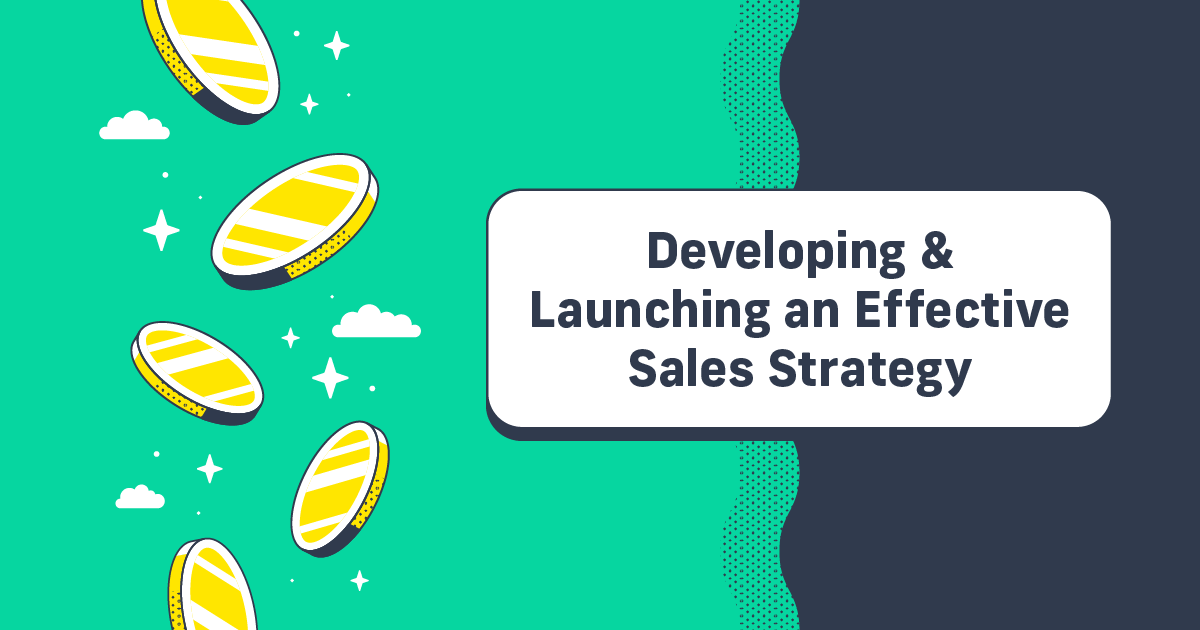Direct Sales Basics for Selling Your Book with Lulu
Selling direct is an incredible way to build sustainable, long-term success with your brand. You’ll foster relationships with your customers, fully control their sales journey on your website, and collect 100% of the revenue from their purchases.
If you’re still doing your research before launching your store, or trying to understand the behind-the-scenes mechanics of your ecommerce plugin, there’s definitely a lot to learn about how direct sales work.
Between comments on our different content channels, conversations with authors and creators at in-person events, and tickets submitted to our dedicated Direct support team, we get a lot of questions about selling direct. Keep reading for a few of the most frequently asked questions, or listen to Episode #70 of Publish & Prosper for more insights and explanations in audio form.
Getting Started
Like writing and self-publishing a book, getting set up to sell your books directly from your website isn’t something that happens overnight. It’s important to know your goals, do your research, and make use of the abundant resources available to help you get started.
Some of the most common questions we get about preparing your store are:
- Which Ecommerce Solution Should I Use?
- How Do I Connect My Book Files to My Store?
- Does Lulu Help with Direct/API Setup?
Which Ecommerce Solution Should I Use?
Several different ecommerce platforms facilitate selling products directly from your own website. Lulu has plugins that integrate with three of the most popular platforms:
If you’re a tech-savvy creator, you can also seamlessly integrate Lulu’s global print network directly into your website with our open-source print API.
If you already have a website, you’ll want to choose an ecommerce solution that your site supports, such as WooCommerce for your WordPress site.
If you don’t have a website yet, you may want to research the differences between these ecommerce solutions so you can ensure your site supports your plugin of choice. Consider things like ease of use, availability of design templates, customization functionality, cost to use, customer support and resources, and the availability of additional integrations.

Sell Your Book, Your Way
Sell books on your Wix, Shopify, or WooCommerce website with Lulu Direct.
Or use our Order Import tool for your next book launch.
How Do I Connect My Book to My Store?
Create or sign into your Lulu account and upload your print-ready PDF files. You’ll need two files for each book: one for the book’s interior and one for the book cover (front, back, and spine).
You are not required to order a proof copy of your book before you start selling from your site, but we do highly encourage it. Not only is it an opportunity for you to review a physical copy of your book, but it’s also a great way to test to make sure your customer journey is working smoothly.
If you’re interested in selling your book in multiple formats—like paperback, hardcover, large print—you can set up product variants within your Lulu Direct dashboard, making it easy for your customers to find all your products. The Lulu Direct plugins do not support ebook or audiobook sales, but there are other apps that you can integrate into your store alongside Lulu Direct to support those product types!
Once you’re satisfied with your product setup, you’ll be able to manage your store through the Lulu Direct Dashboard; check out this walkthrough of the dashboard’s features and functionality.
Does Lulu Help with Direct/API Setup?
We do have an in-house ecommerce team dedicated to helping our Direct and API customers! However, while this team is happy to provide guidance and support, they are not able to fully complete the Direct or API setup on your behalf.
There are free resources available to help you, including a robust knowledge base for both Lulu Direct and the Print API, tons of posts right here on the blog, and podcast episodes like Your 7-Step Guide to Building an Online Bookstore. Check out these YouTube playlists for guided tutorials specific to Shopify, Wix, and WooCommerce:
For free resources delivered straight to your inbox, sign up for our email list!
The Mechanics of Selling Direct
As selling direct becomes more popular among indie authors and entrepreneurs, the benefits are pretty well-known and understood. The mechanics? Less well known, and definitely less understood. Some of the most frequently asked questions we get are:
- How Do Transactions Work?
- Can I Sell More Than Just Books?
- Who is Responsible for Handling Customer or Order Issues?
How Do Transactions Work?
From purchase to delivery, here’s how a Lulu Direct transaction works:
- A customer purchases a book on your website.
- Your ecommerce plugin collects payment and transfers to you the full amount the customer paid.
- You pay Lulu the production cost—print, fulfillment, shipping, and sales tax—of the book.
- Lulu prints and ships the book directly to your customer.
- You bank the revenue from the sale.
Each step of this process is automated within your store and your Lulu Direct dashboard. You’ll set up payment methods for your ecommerce plugin to deposit revenue and for Lulu to charge production costs, and the rest is taken care of.
TL;DR:
- Who pays me after a sale? Shopify, Wix, or WooCommerce.
- What does Lulu charge me to fulfill the order? Print price, shipping & handling, fulfillment fee, and sales tax.
- Does Lulu take any additional revenue from the sale? Nope.
Can I Sell More Than Just Books?
Yes! All three of our ecommerce plugins are built on platforms that have plenty of other integrations and apps; you can easily install multiple apps in one store.
This is a great option for not just adding ebooks and audiobooks to your store, but also merch like t-shirts, stickers, tote bags, and other print-on-demand products.

Customers will still have a seamless checkout experience thanks to split cart features; after their order is processed, the necessary details will be sent to the respective apps, including Lulu Direct.
Can I Sell My Books as a Bundled Set?
Yes! Whether you’re a fiction author selling a series or a nonfiction author curating themed collections of your work, it’s easy to bundle your books together in your Lulu Direct store. This tutorial video is a step-by-step guide to setting up product bundles in your dashboard.
If you prefer your instructions written out or want to learn more about the benefits and practicalities of book bundles, check out this blog post.

Who is Responsible for Handling Customer or Order Issues?
Lulu Direct is a white-label fulfillment tool, which means that everything from your packaging and packing slips to your shipping and delivery emails will be free of any Lulu branding. Your customers never have to know that Lulu is your printer!
It also means that as far as the customers are concerned, you are the business they’re ordering from, and the point of contact if they have an issue.
Set yourself up for success with your customer service strategy by creating an FAQs page on your site and providing clear guidelines and expectations for customers reaching out to you.

So does Lulu Ever Contact My Customers?
Nope. We couldn’t even if we wanted to: their customer data belongs to you, not us.
Breaking Down the Finances
Selling direct gives you, the store owner, complete control over your revenue, list price, exclusive discounts, etc. But that means it’s entirely up to you to understand how those things work.
We often get questions around the financial setup and functionality, like:
- How Do I Calculate Revenue for My Book Sales?
- How Do I Know What to Charge My Customers?
- What if I Want to Offer Discount Codes?
How Do I Calculate Revenue for My Book Sales?
To calculate your revenue manually, subtract the total production cost (print price, shipping, fulfillment, and sales tax) from what your customer pays you for the book.
So if Lulu charges you $6 to print and fulfill your order, including sales tax and the fulfillment fee, and $5 for shipping, your book’s production cost is $11. If you charge your customer $20 for the book, your revenue is $9!
You can use our Pricing Calculator to determine the production cost of your book, estimate shipping costs, and estimate revenue. You’ll also find this information built into the publishing tool as you’re setting up your book files.

How Do I Know What to Charge My Customers?
The short answer is: it’s up to you.
The longer answer is: it depends on your goals for your book. In general, you want to make sure that your list price (the retail price of your book) is at least high enough to completely cover the production cost of the book, so that you’re not losing money on book sales.
If you’re using it as a lead generation tool or brand growth tool, you might want to price your book slightly lower than average to encourage new customers. If you’re trying to grow your revenue, you might want to charge a little more, while still keeping your book within a competitive price point compared to other books in your genre.
The longest answer is: listen to this episode of Publish & Prosper for a full-length discussion of how to determine the right retail price for your book.
Am I Responsible for Collecting Sales Tax and Calculating Shipping Costs?
Yes. Luckily, there are plenty of resources to help with that, with or without the involvement of a tax professional.
For Sales Tax: All three of the ecommerce platforms have built-in tools and integrations to help support any store owners who need to collect their own sales tax. However, only store owners that make over a certain threshold in revenue are required to collect sales tax. This article from Shopify can help provide more insight, but again, we recommend reaching out to the pros with any questions.
For Shipping Costs: You have several options, depending on which ecommerce solution you choose. The YouTube playlists linked above each include a step-by-step tutorial for setting up shipping in Shopify, Wix, and WooCommerce.
What if I Want to Offer Discount Codes?
The option to offer discount codes or promos is built into your ecommerce platform, not the Lulu Direct dashboard. You can find more information on how to create and manage promotions on your Shopify, Wix, and WooCommerce stores in their (very thorough and useful) respective help centers.

Your Free Lulu Account
Create a Lulu Account today to print and publish your book for readers all around the world
Whether your goal is to exclusively sell from your website or to go wide with your book distribution by adding another ecommerce option, we’re here to help. The videos, posts, episodes, and resources linked here barely scratch the surface of available content.
If all else fails, or you still can’t find the solution you’re looking for, don’t hesitate to reach out to our amazing Lulu Direct Support Team. We’re here to support your direct sales journey every step of the way!








